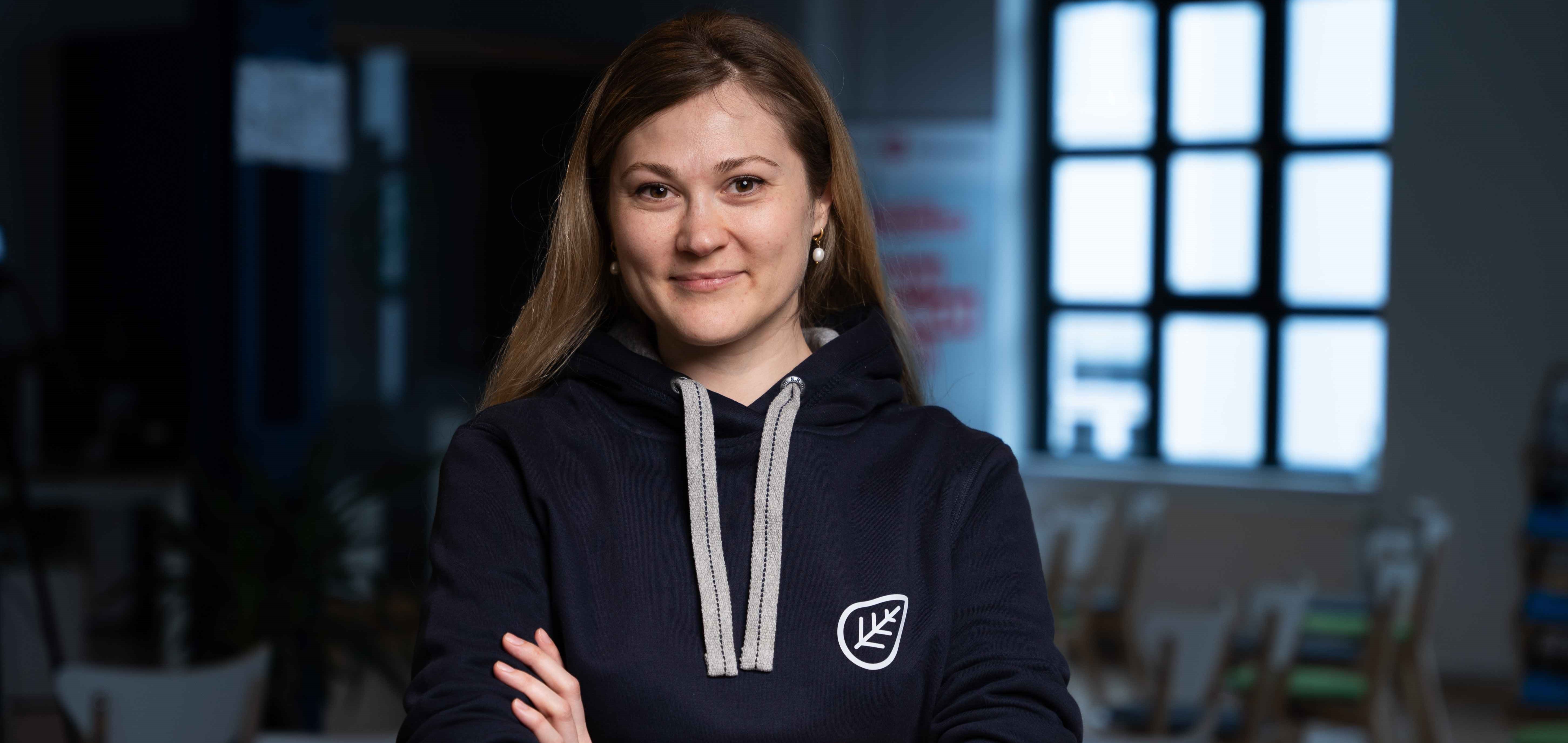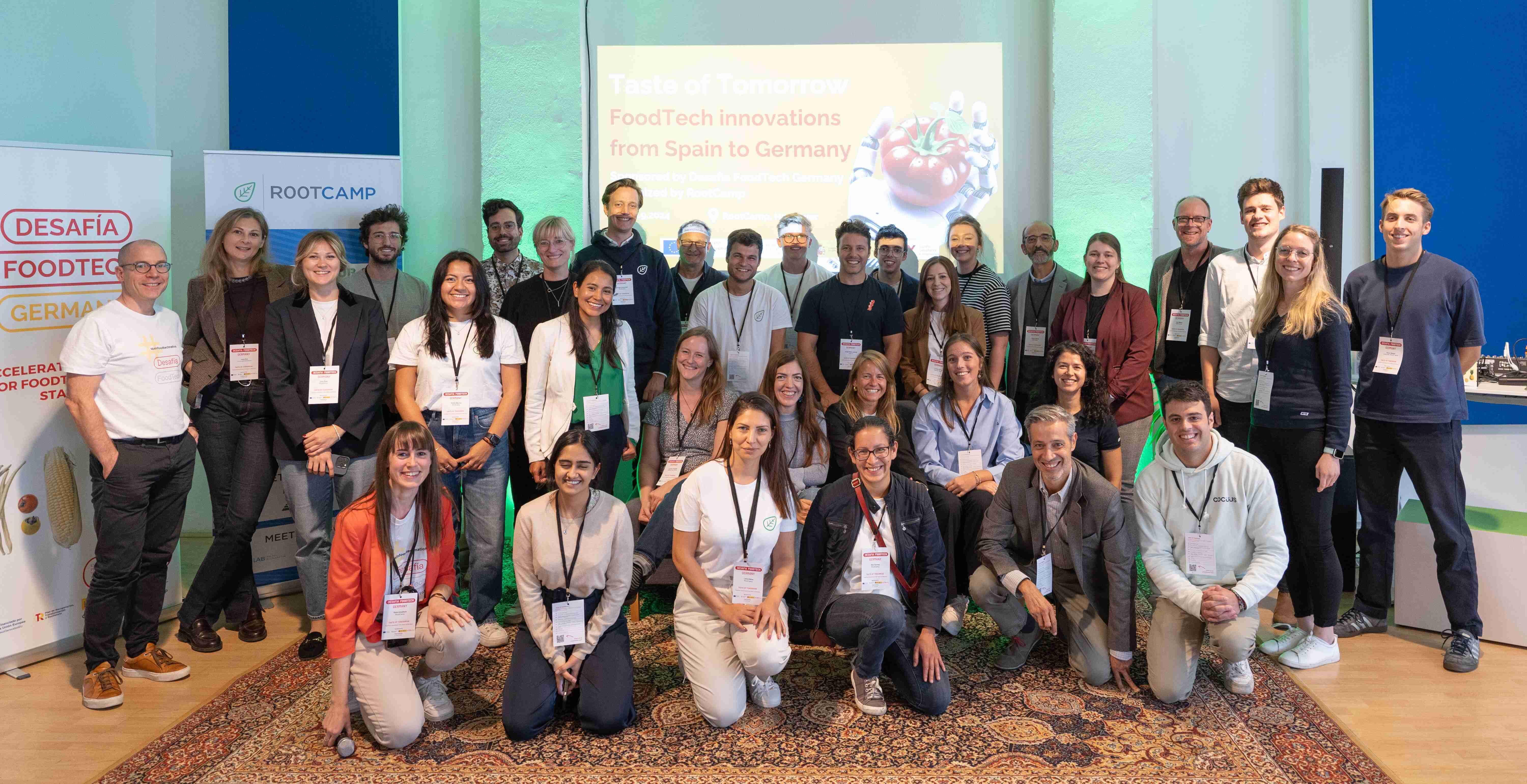Quevana, one of the participants of Desafia FoodTech Germany program, wants to have a positive impact on society and contribute their bit to improve the food system. Through innovation in fermentation and maturation processes they obtain 100% plant-based cheeses that, besides being great, take care of the health of consumers, are efficient in the use of resources to have a sustainable impact and take animals out of the production equation. We talked with Alejandro Álvarez, who together with his family makes sustainable cheese from cashew.
%20(1).jpg?width=750&height=500&name=Alejandro%20de%20Quevana%20(1)%20(1).jpg)
You distribute Quevena cheeses in about 600 Dutch supermarket chain shops. Do you plan to extend your presence?
At the moment we’ve reached more than 1000 points of sale, some of our clients include Jumbo supermarket from The Netherlands, Maxima and Coop supermarkets in Estonia, Norfa supermarket in Lithuania, Continente supermarket in Portugal, Al Jazira supermarket in Bahrain, Monoprix supermarket in Qatar, Herbolario Navarro supermarket in Spain and hundreds of organic supermarkets/stores across Spain, Germany and France.
Can you share the journey behind discovering that cashews were the ideal nut for fermenting vegan cheese?
Companies, supermarkets, and consumers are increasingly looking for more efficient ways to feed ourselves, but for these new foods to truly take root in our daily diets, it’s important that they taste great, are healthy, sustainable, and affordable. At Quevana, we’ve spent several years researching to create a new type of cheese that meets all these characteristics, and we’ve achieved it by changing the main ingredient: instead of cow’s milk, we use cashew milk.
We combine innovations in fermentation and processing to ferment and mature the proteins and fats from cashews in a way similar to how the proteins and fats from dairy milk are fermented and matured in the traditional cheesemaking process, resulting in spectacular cheeses made from cashew milk instead of cow’s milk. We experimented with different raw materials, such as nuts, cereals, and seeds, but achieved the best results with cashews, as they work exceptionally well with the strains of bacteria we selected for the fermentation and maturation process.
What were some of the key factors you considered in your selection process, and how did you ensure that the resulting cheese would match the taste and texture of traditional dairy cheese?
We develop all our cheeses following four main standards. First, they’re absolutely delicious — most people who consume them are neither vegan nor vegetarian; they simply love them. Second, they’re very healthy. Just as traditional cheese is made from three basic ingredients— milk, salt, and ferments — our cheeses are made from cashews, salt, and ferments. With 16% protein content thanks to the cashews, they are rich in healthy fats and probiotics, with no cholesterol or lactose. Third, they’re sustainable, producing 60% fewer carbon emissions, 60% less eutrophication, and using 90% less land compared to traditional dairy cheeses. Plus, they are organic certified. Finally, they’re accessible. We’re one of the first companies globally in this category to offer cheeses at price parity with traditional dairy cheeses, thanks to our scaled production in our own organic, IFS-certified factory in Segovia, Spain.
Spain is highly regarded as a "land of cheese," and we’ve been able to leverage traditional cheesemaking knowledge and pair it with innovations in fermentation and maturation to create truly spectacular cashew-based cheeses.
Are there any upcoming innovations or new products that you are particularly excited about, and how do you see the future of plant-based cheeses evolving?
We’re very excited as we’re expanding our current matured cheeses range with new flavors and we’re also going to launch in the next months a new range of cream cheese which will be available in both retail, foodservice and industrial sizes. We’re also developing a meltable-stretchable range to sell in blocks, slices and shredded. This one is still in development so we don’t have exact launch date yet but the results are very promising so it could reach the market somewhere during 2025.

Can you discuss the challenges of working with non-dairy substrates like cashews in maintaining consistent microbial activity?
This is a very important part of the process. We use more than 15 strains of bacteria in our fermentation and maturing process and use specific fermentation techniques/parameters to create fermentation reactions typical of the traditional cheesemaking process and obtaining cheeses with spectacular flavor and texture but with cashew milk instead of cow’s milk. In fermentation and maturing, any alteration in temperature, humidity, time, etc., can affect the microbial activity and change the product significantly.
How do you control prices in order to be competitive on the market?
We’re one of the first companies globally in this category to offer this type of cheese at price parity with traditional dairy cheeses, thanks to our scaled production in our own factory in Segovia, Spain, which is both organic and IFS certified. This makes it easier for all types of consumers to access our cheeses when they visit their supermarket or store and see a new type of cheese that looks appealing, is very healthy, sustainable, and priced similarly to dairy cheese. They try it—and absolutely fall in love with it.
To maintain competitive pricing, we believe it’s important, among other things, to have a solid understanding of production and cost measurement, strong financial control of operations, and effective cooperation with supermarkets, distributors, and others to achieve the desired price on the shelf for the consumer.
What does participating in Desafia Foodtech Germany mean to you?
For us Germany is a very strategic market, we started selling our first cheeses in Germany in November 2023 and we’re very happy with the feedback from German consumers. The Desafía Foodtech Germany program is a great opportunity to keep expanding in the German market and to present our innovative cheeses to some of the main retailers, distributors, foodservice chains, manufacturers, etc. We’ve participated in a previous edition of the Desafía program held in The Netherlands in 2021 with great results and we’re eager for this program to help us expand further in Germany.
Check our LinkedIn page and subscribe to our newsletter to not miss any news from our startups and ecosystem!
/rootcamp_logo_white_2022.png?width=2123&height=630&name=rootcamp_logo_white_2022.png)

/RC%20logo%202022.png?width=2325&height=703&name=RC%20logo%202022.png)



